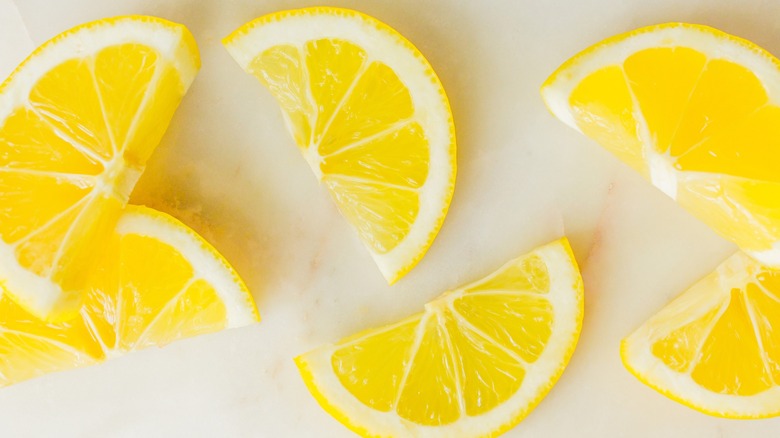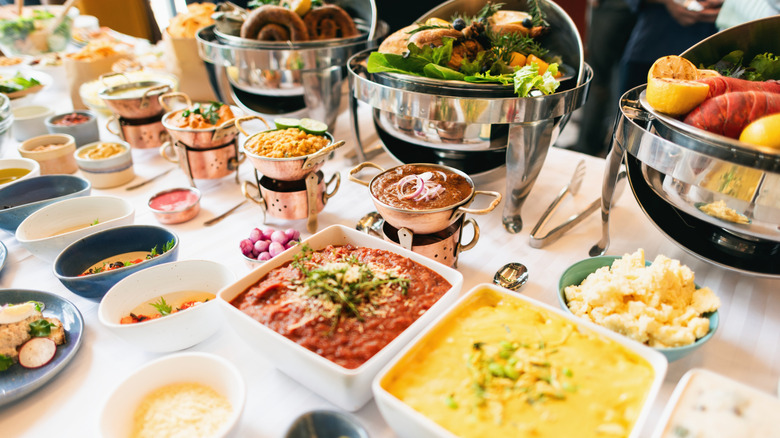Why You Should Steer Clear Of Lemon Slices At Any Buffet
Buffets are wonderful things, offering varieties of different foods from meats and salads to sides and desserts. There's bound to be something for everyone's tastes. And the restaurateurs or servers always make them look attractive, using bits of decor as well as bowls of garnishes that are pretty as well as functional. These include mint, fresh herbs, edible flowers, and most often, lemon slices. But those lemon slices hold a dark little secret that could have you shying away from buffets going forward.
A large percentage of them are quite likely riddled with potentially problematic microbes — up to 25 different types, according to a 2007 study published in the Journal of Environmental Health. These range from E. coli to Staph to the notorious Norovirus, which has been touted as single-handedly causing entire cruise ships to fall ill. The harmful pathogens are typically deposited onto the lemons' rinds and flesh through bodily secretions and fecal matter.
These contaminants can come from both the patrons and serving/prep staff's side, and are then carried to our innocent-looking lemon wedges. This happens for several different reasons, including a lack of good hand-washing protocols (especially after using the bathroom); multiple people handling the lemons throughout the course of the day; using the same cutting utensils or chopping boards on the lemons as other produce or, worse, meat; or the lemons not being stored at the correct temperature to control the spread of bacteria.
Staying safe at the buffet table
Your best bet is, of course, to just leave the lemon wedges where they lie. Your fried fish will taste just as yummy with tartar sauce. But if the call of the lemon is too strong, then ask your server for a few slices from the kitchen on a separate plate, and squeeze the juice over your meal before discarding the wedge. The lemon's rind is where you'll find most of the harmful pathogens hiding because citrus fruit peels are generally quite porous. So, by just using the juice (then washing or sanitizing your hands before tucking into your meal), you can protect yourself from many of those germs while still allowing lemons to elevate your fried dishes and other foods.
With the above being said, a Director of Microbiology and Immunology at New York University's Langone Medical Center, Dr. Philip Tierno, believes that the risk of actually getting ill is very small. In the course of a 2012 study conducted by ABC News and himself in which various restaurant items were swabbed for microbes, Tierno told HuffPost that, due to our efficient immune systems, "the usual course will probably result in no infection, but there is a possibility". So, it's better to be safe than sorry.
Other tips to help you keep germ-free at a buffet include avoiding dishes where the handles of the serving spoon or tongs have fallen into the dish. Also, use a fresh plate and eating utensils if you go back for a refill. This is more about protecting others from the germs that your own plate may transfer to serving utensils that others will be using. And, of course, always wash your hands properly before eating or handling food.

